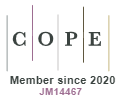SUSTAINABILITY RESEARCH: A GROUNDED THEORY APPROACH IN THE FIELD OF CLIMATE CHANGE
DOI:
https://doi.org/10.5585/geas.v8i3.15766Palavras-chave:
Construção de teoria, Teoria fundamentada, Pesquisa em desenvolvimento sustentável, Soft science, REDD , Mudança climática.Resumo
A mudança climática é um problema global, complexo e incerto, pois é impulsionado pelo comportamento humano, e apresenta riscos no longo prazo para os sistemas naturais e humanos. Mudanças no comportamento humano, fluxo de financiamento, instrumentos de política, e governança multinível são necessários para mitigar e gerenciar os principais riscos climáticos. Entender as dimensões sociais da mudança climática é, literalmente, um tema quente a ser estudado. A maior parte da literatura científica nessa área é focada em ‘hard science’. Diferentes métodos de construção de teoria são utilizados nas ciências sociais aplicadas. No entanto, o uso da abordagem da teoria fundamentada na pesquisa em sustentabilidade, especialmente ‘soft science’ na área de mudanças climáticas, é escasso. O objetivo desse artigo é discutir o uso do método teoria fundamentada em um campo de pesquisa emergente que combina governança e mudança climática. O artigo apresenta resultados substantivos de um quadro teórico emergente que explica o processo de governança de REDD+ no Brasil, um mecanismo de financiamento climático da Convenção-Quadro das Nações Unidas sobre Mudanças Climáticas (UNFCCC) focado na mitigação de emissões florestais em países em desenvolvimento. Ao invés de discutir sobre os melhores procedimentos e técnicas para construir uma teoria, que podem ser acessadas em várias publicações científicas, esse artigo apresenta um guia prático e discute as lições aprendidas para integrar o "Modelo Teórico de Governança em REDD+". Acadêmicos e pós-graduandos são encorajados a testar e validar (ou não) o modelo teórico emergente nesse estudo.
Downloads
Referências
Biernacki, P., & Waldorf, D. (1981). Snowball sampling: Problems and techniques of chain referral sampling. Sociological methods & research, 10(2), 141-163.
Charmaz, K. (1983). The grounded theory method: An explication and interpretation. Contemporary field research, 109-126.
Charmaz, K. (1996). The Search for Meanings - Grounded Theory. In J. A. Smith, R. Harre, & L. Van Langenhove (Eds.), Rethinking Methods in Psychology (pp. 27–49). London: SAGE Publications. https://doi.org/10.1016/B978-0-08-044894-7.01581-5
Corbera, E., & Schroeder, H. (2011). Governing and implementing REDD+. Environmental Science and Policy, 14(2), 89–99. doi:10.1016/j. envsci.2010.11.002
Corbin, J. M., & Strauss, A. (1990). Grounded theory research: Procedures, canons, and evaluative criteria. Qualitative sociology, 13(1), 3-21.
Corbin, J., & Strauss, A. (2015). Basics of qualitative research: Techniques and procedures for developing grounded theory (4th ed.). Thousand Oaks, CA: Sage Publications.
Fatorelli, L., Gebara, M. F., May, P., Zhang, S., & di Gregorio, M. (2015). The REDD+ governance landscape and the challenge of coordination in Brazil. Bangor. Retrieved from http://www.cifor.org/library/5508/the-redd-governance-landscape-and-the-challenge-of-coordination-in-brazil/
Friese, S. (2013). Data analysis and theory-building tools. In ATLAS.ti 7 User Guide and Reference (p. 469). Berlin: ATLAS.ti Scientific Software Development GmbH. Retrieved from http://atlasti.com/wp-content/uploads/2014/05/ATLAS.ti-7-Network-Views.pdf
Glaser, B. (1978). Theoretical sensitivity. Advances in the methodology of grounded theory.
Glaser, B. G., & Strauss, A. L. (1967) The discovery of grounded theory: strategies for qualitative research. Chicago: Aldine.
Goulding, C. (2002). Grounded Theory: A Practical Guide for Management, Business and Market Researchers (1st ed.). London: SAGE Publications.
Greene, J. C., Caracelli, V. J., & Graham, W. F. (1989). Toward a Conceptual Framework for Mixed-Method Evaluation Designs. Educational Evaluation and Policy Analysis, 11(3), 225–274. doi:10.3102/01623737011003255
Hall, W. A., & Callery, P. (2001). Enhancing the rigor of grounded theory: Incorporating reflexivity and relationality. Qualitative health research, 11(2), 257-272.
Hueser, N. G. (1999). Grounded Theory Research: Not for The Novice.
Ikeda, A. A., & Bianchi, E. maria P. G. (2009). Considerações Sobre Usos e Aplicações da Grounded Theory em Administração. Faces R. Adm, 8(2), 107–122.
INPE. (2019, May 28). PRODES – Monitoramento da Floresta Amazônica Brasileira por Satélite. Available at http://www.obt.inpe.br/OBT/assuntos/programas/amazonia/prodes. Last update 11/23/2018.
IPCC. (2014). Climate Change 2014 Synthesis Report - Summary for Policymakers. Retrieved from https://www.ipcc.ch/pdf/assessment-report/ar5/syr/AR5_SYR_FINAL_SPM.pdf
Jick, T. D. (1979). Mixing Qualitative and Quantitative Methods: Triangulation in Action. Administrative Science Quarterly, 24(4), 602–611.
Johnson, B., & Turner, L. A. (2003). Data collection strategies in mixed methods research. Handbook of mixed methods in social and behavioral research, 297-319.
Johnson, R. B., Onwuegbuzie, A. J., & Turner, L. A. (2007). Toward a Definition of Mixed Methods Research. Journal of Mixed Methods Research, 1(2), 112–133.
Kennel, C. F., Briggs, S., & Victor, D. G. (2016). Better indicators for risk management are needed after Paris. Science, 354(June 2008), 421–422.
Korhonen-Kurki, K., Brockhaus, M., Efrian, M., Juhola, S., Moira, M., Cynthia, M., & Bimo, D. (2017). Analyzing REDD+ as an experiment of transformative climate governance: Insights from Indonesia. Environmental Science and Policy, 73(December 2016), 61–70. doi:10. 1016/j.envsci.2017.03.014
Lederer, M. (2012). REDD+ governance. Wiley Interdisciplinary Reviews: Climate Change, 3(1), 107–113. doi:10.1002/wcc.155
Marcovitch, J., & Pinsky, V. C. (2014). Amazon fund: Financing deforestation avoidance. Revista de Administração, 49, 280–290. doi:10.5700/rausp1146
Masson-Delmotte, V., Zhai, P., Pörtner, H.-O., Roberts, D., Skea, J., Shukla, P. R., … Waterfield, T. (2018). Summary for Policymakers. Global Warming of 1.5°C. An IPCC Special Report on the impacts of global warming of 1.5 oC above pre-industrial levels. Global Warming of 1.5°C. An IPCC Special Report on the impacts of global warming of 1.5°C above pre-industrial levels and related global greenhouse gas emission pathways, in the context of strengthening the global response to the threat of climate change,. https://doi.org/10.1017/CBO9781107415324
Mathison, S. (1988). Why Triangulate? Educational Researcher, 17(2), 13–17. doi:10.3102/0013189X017002013
Miles, M. B., Huberman, A. M., & Saldaña, J. (2013). Qualitative data analysis: A methods sourcebook. 3rd ed. Thousand Oaks, CA: Sage.
Morse, J. M., Barrett, M., Mayan, M., Olson, K., & Spiers, J. (2002). Verification Strategies for Establishing Reliability and Validity in Qualitative Research. International Journal of Qualitative Methods, 1(2), 13–22. http://doi.org/10.1177/160940690200100202
Pinsky, V. C. (2017). Experimentalist Governance in Climate Finance: the case of REDD+ in Brazil. University of Sao Paulo. Retrieved from http://www.teses.usp.br/teses/disponiveis/12/12139/tde-14122017-163027/pt-br.php
Pinsky, V. C., Kruglianskas, I., & Victor, D. G. (2019). Experimentalist governance in climate finance: the case of REDD+ in Brazil. Climate Policy, 0(0), 1–14. https://doi.org/10.1080/14693062.2019.1571474
Pozzebon, M., Petrini, M., de Mello, R. B., & Garreau, L. (2011). Unpacking researchers’ creativity and imagination in grounded theorizing: An exemplar from IS research. Information and Organization, 21(4), 177–193. https://doi.org/10.1016/j.infoandorg.2011.09.001
Prins, G., & Rayner, S. (2007). The Wrong Trousers: Radically Rethinking Climate Policy. James Martin Institute for Science and Civilization, University of Oxford and the MacKinder Centre for the Study of Long-Wave Events, London School of Economics. Retrieved from http://eureka.bodleian.ox.ac.uk/66/1/TheWrongTrousers.pdf
Sabel, C. F., & Zeitlin, J. (2008). Learning from difference: The new architecture of experimentalist governance in the EU. European Law Journal, 14(3), 271–327. https://doi.org/10.1111/j.1468-0386.2008.00415.x
Sampieri, R. H., Collado, F. & Lucio, C. B. P. (2006). Metodologia de pesquisa. 3. ed. São Paulo: McGraw-Hill.
Stern. (2007). Stern Review on the Economics of Climate Change. Journal of Economic Literature, 7(4), 233–724. doi:10.1257/jel.45.3.703
Strauss, A. L. (1987). Qualitative analysis for social scientists. Cambridge university press.
Strauss, A., & Corbin, J. (1990). Basics of qualitative research: Grounded theory procedures and techniques. Newbury Park, CA: Sage.
Suddaby, R. (2006). From the Editors: What Grounded Theory Is Not. Academy of Management Journal, 49(4), 633–642. https://doi.org/Editorial
Sutton, R. I., & Staw, B. M. (1995). What Theory is Not. Administrative Science Quarterly, 40(3), 371–384. Retrieved from http://links.jstor.org/sici?sici=0001-8392%28199509%2940%3A3%3C371%3AWTIN%3E2.0.CO%3B2-F Administrative
Tashakkori, A., & Teddlie, C. (Eds.). (2003). Sage handbook of mixed methods in social & behavioral research. Sage Publications.
UN Environmental Programme. (2019). Global Environment Outlook – GEO-6: Summary for Policymakers. Cambridge. https://doi.org/10.1017/9781108639217
Van der Werf, G. R., Morton, D. C., DeFries, R. S., Olivier, J. G. J., Kasibhatla, P. S., Jackson, R. B., … Randerson, J. T. (2009). CO2 emissions from forest loss. Nature Geoscience, 2(11), 737–738. https://doi.org/10.1038/ngeo671
Wagner, G., & Zeckhauser, R. J. (2012). Climate policy: Hard problem, soft thinking. Climatic Change, 110(3–4), 507–521. https://doi.org/10.1007/s10584-011-0067-z
Yin, R. K. (2004). The case study anthology. Sage.
Downloads
Publicado
Como Citar
Edição
Seção
Licença
Copyright (c) 2019 Vanessa C. Pinsky, Isak Kruglianskas, Clandia Maffini Gomes, Amir Rezaee

Este trabalho está licenciado sob uma licença Creative Commons Attribution-NonCommercial-ShareAlike 4.0 International License.
- Resumo 1335
- PDF (English) 790












